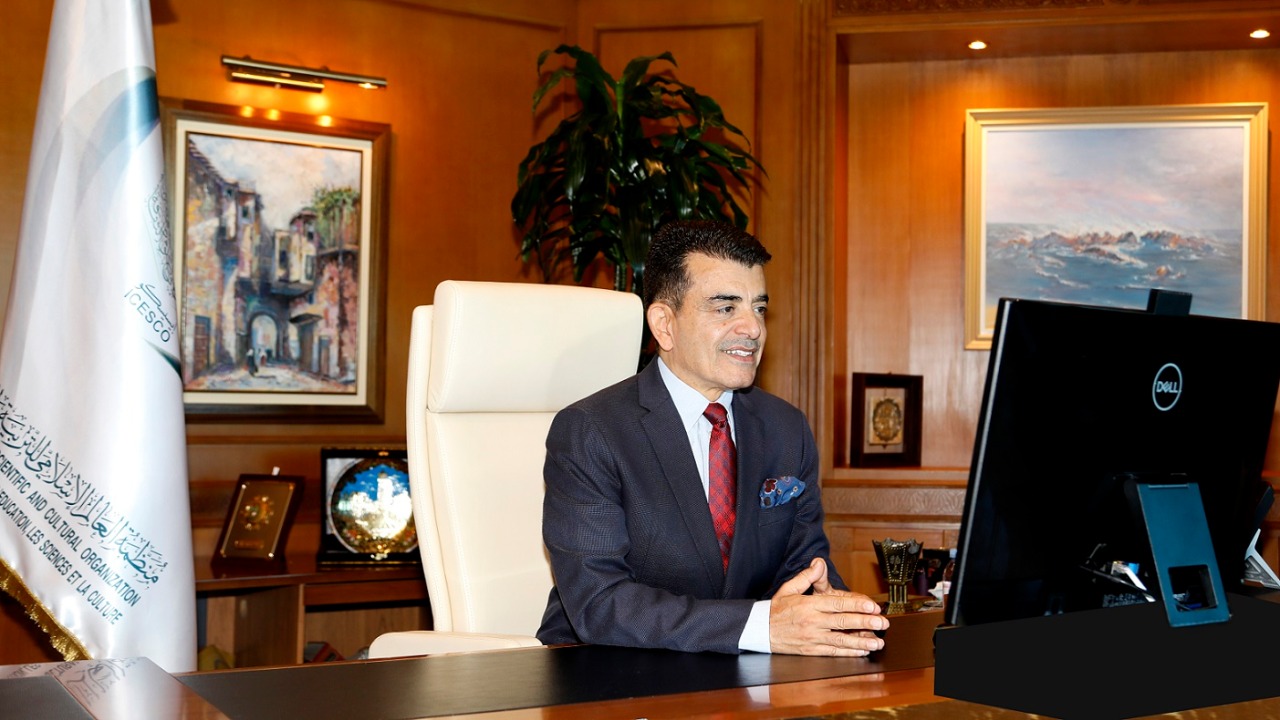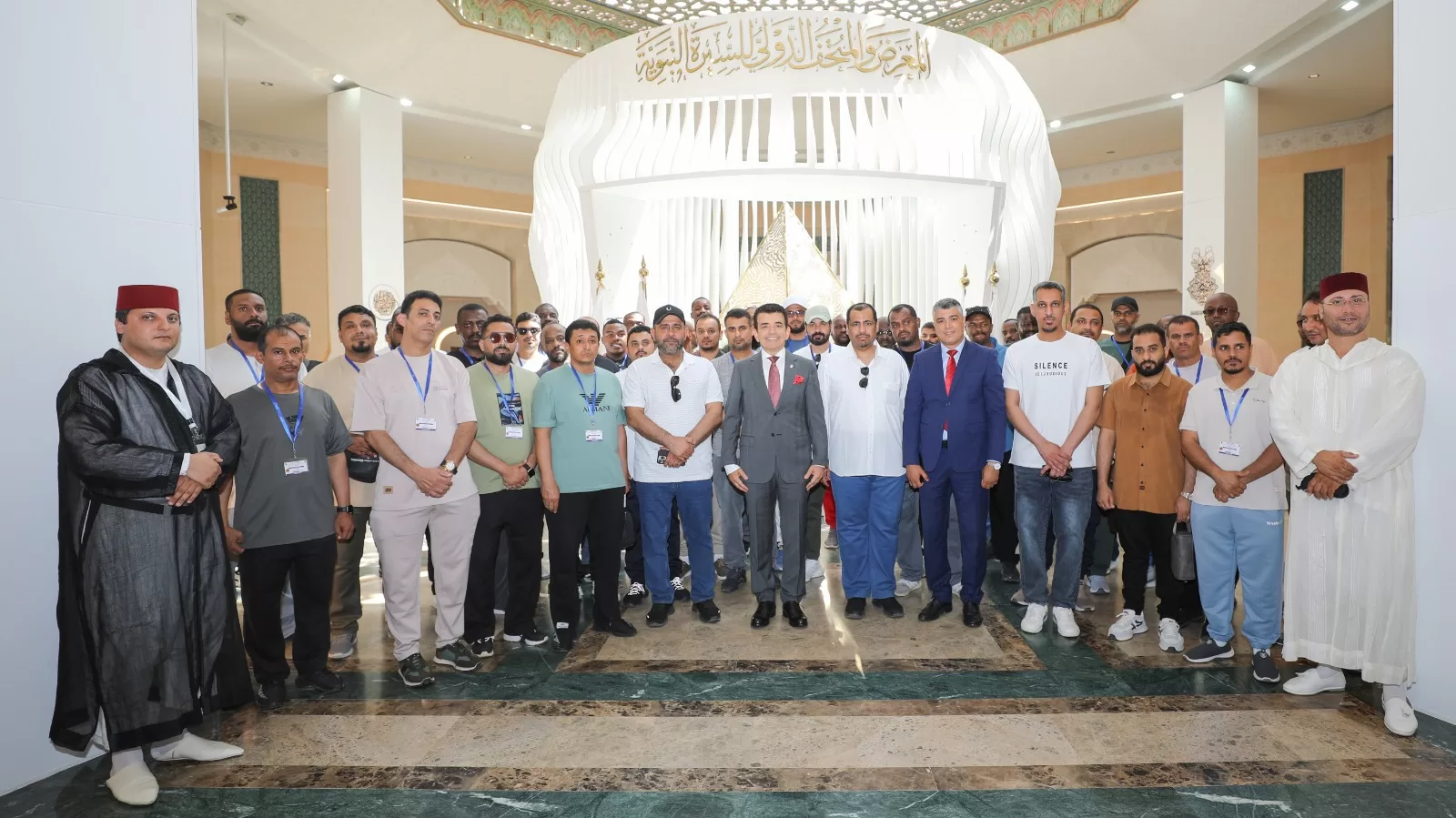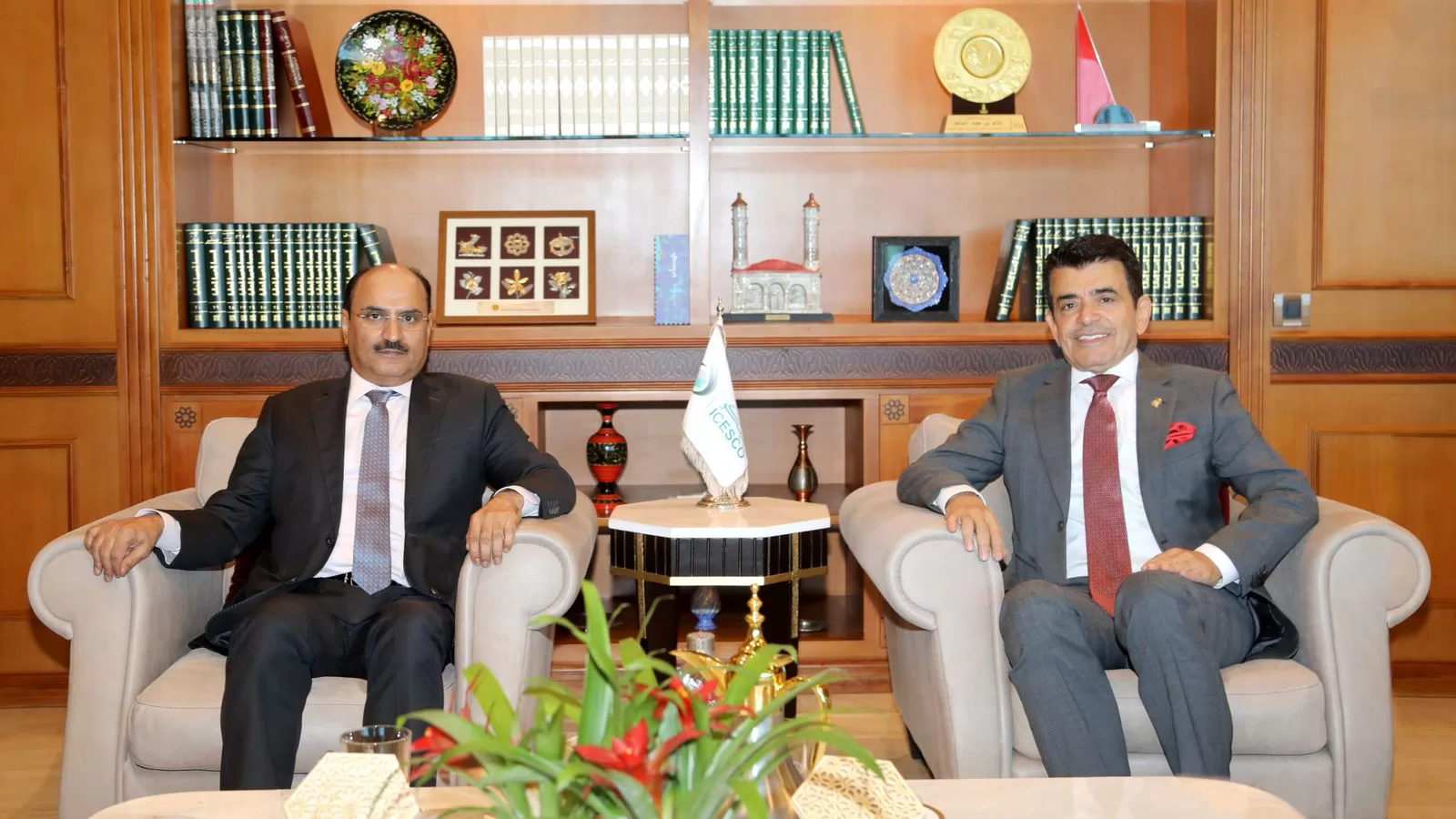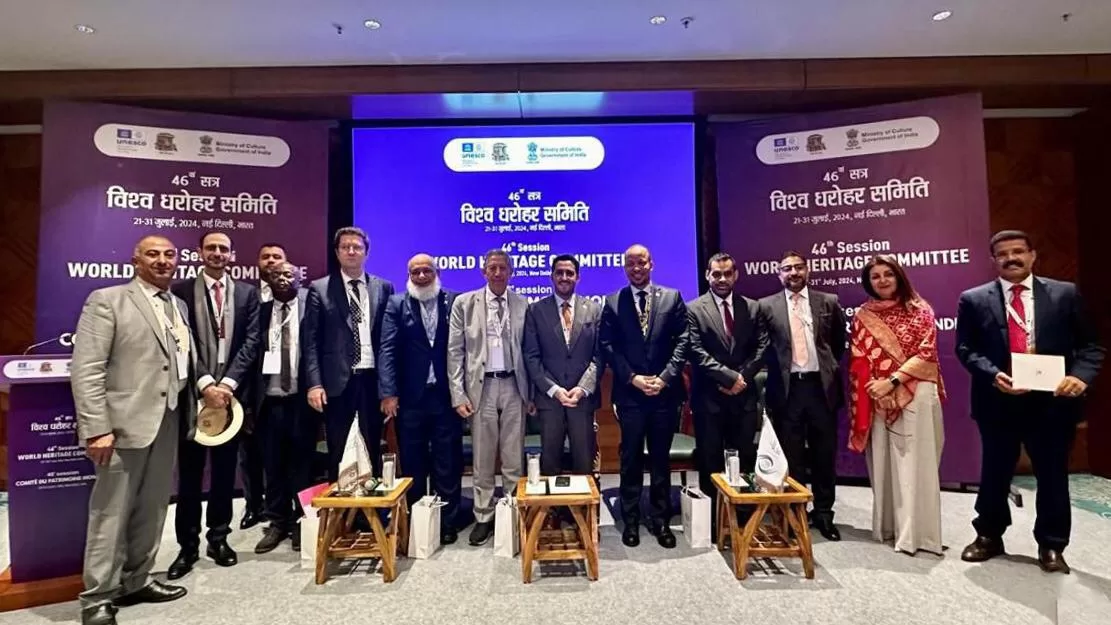
Muhammad Iqbal’s Anniversary: ICESCO Studies Foresight Vision of the Scholar

12 November 2020
As part of the Islamic World Educational, Scientific, and Cultural Organization (ICESCO) initiatives to publicize great thinkers and intellectuals in the history and present of the Islamic world, the Organization held an international webinar under the theme: “Tolerance, Foresight and Iqbal.” The goal is also to benefit from the scholars’ perceptions and creativity to advance the reality of the Islamic world, promote its societies, and build the future.
ICESCO’s Strategic Foresight Center held the webinar to commemorate the birth of the illustrious intellect, as one of the most important philosophical, poetic, and literary figures in the history of the Islamic world.
At the opening session of the webinar, Dr. Salim M. Al-Malik, ICESCO Director-General (DG), called on the Islamic world to renew and enlighten minds and promote the values to revive the glories of the Ummah. The DG particularly focused on the thought, action, peace and tolerance, and active engagement in progress and development.
The glory can also be achieved through rejecting all forms of violence, extremism, and intellectual momentum that have nothing to do with the Islamic religion and the Message of the Honorable Prophet (PBUH), the DG continued.
At the close of his address, Dr. AlMalik stressed that the webinar will not be the last of its kind to revive and disseminate the peaceful messages contained in the noble Islamic religion, a religion known for its tolerance and noble moral values. He also stressed learning from the contribution of the Ummah’s historical and contemporary scholars and thinkers to human civilization.

In her address, Ms. Nasira Iqbal, a lawyer and daughter-in-law of the late scholar Muhammad Iqbal, said that the message of peace was clear in the teachings of Muhammad Iqbal and that his poetry constitute an invitation for tolerance and equality. She added that Iqbal believed that everyone plays a role in the international community and that the ideal state is one that respects the faith and beliefs of its different citizens.
Mr. Hamid Asghar Khan, Ambassador of Pakistan to Morocco, indicated in his presentation the importance of history and foresight. He stressed on the role of education in the advancement of peoples and of tolerance achieving respect for culture.
Mr. Imtiaz Ahmed Kazi, Ambassador of Pakistan to the Philippines, explained that tolerance does not mean abandoning social values, but rather not persisting in imposing certain practices on others. He continued that Muhammad Iqbal is among the poets who promoted the value of tolerance in Pakistan.
The first session of the event discussed “Aspects of peace and tolerance in the writings of Muhammad Iqbal.” Mr. Abdul Raouf, a Pakistani journalist and analyst, said that Muhammad Iqbal was an outstanding Muslim figure and, through his philosophy, called for tolerance and unity among all Muslims, as well as knowledge and innovation.
Mr. Asadullah Khan, writer and journalist, said that Muhammad Iqbal was seeking a vision of the future for all humanity that is not limited to any specific region, as well as supporting democracy and the right of peoples to independence.
The second session focused on “Muhammad Iqbal’s Forward-looking Vision,” which featured Dr. Aziz Ali Najam, former Vice-Chancellor of Karakoram International University in Pakistan. Dr. Najam stated that Muhammad Iqbal was aware that critical thinking is needed to limit the influence of the material world and that poetry was only a method to keep the Ummah united.
Philosopher Abdul Nour Bidar stressed the need to teach the thought and writings of Muhammad Iqbal to current and future younger generations, and to encourage scholars to deepen his thought.
Mr. Mohammed Thami Elharrak, a scholar specialized in Islam and Sufism, stressed the urgent need for a religious revival to develop Islamic thought.
In his address, Mr. Sulaiman Bashir Dayyan, philosopher and specialist in Islamic philosophy, said that divided communities rejecting the Other need to know and be inspired by the principles of Muhammad Iqbal’s philosophy, which are deep-rooted in the Holy Quran.
Dr. Kaïs Hammami, Director of the Center for Strategic Foresight, said that ICESCO is in the process of producing a book on the thought and philosophy of Muhammad Iqbal, under the title “Relation with Time in the Philosophy of Muhammad Iqbal.” He also stated that the Organization will hold a symposium in 2021 to discuss the Scholar’s ideas and prospective vision.



